
THEME
Transforming health systems to achieve universal health coverage in Africa
Achieving universal health coverage (UHC) in Africa will require the transformation of existing health systems to be more equitable, efficient, and responsive to the needs of the population. This will involve strengthening existing health infrastructure through robust systems assessments, improving healthcare financing, and enhancing the overall quality of care. It also requires addressing the social determinants of health, such as poverty, education, and housing, which have a significant impact on health outcomes. By transforming health systems such as adopting the One Health Approach, fostering access to health services and goods, implementing new technologies, harnessing the power of health informatics and data science, and strengthening health promotion, African countries can ensure that everyone has access to essential healthcare services and a better quality of life without facing financial hardship. Research is fundamental in these efforts: uptake, dissemination, and engagement of research studies often hold valuable insights and policies that can significantly contribute to the strengthening of health systems and to progress in the fight against diseases.
SUB-THEMES
Socio-ecological determinants and approaches to health service delivery (climate change and One Health)
The socio-ecological determinants of health, including climate change and the One Health approach, play a critical role in shaping health outcomes in Africa. Climate change affects health through extreme weather events such as droughts and floods, air pollution, and vector-borne diseases, while One Health recognizes the interconnectedness of human, animal, and environmental health. Addressing these determinants requires a holistic approach that recognizes and understands the social, economic, and environmental factors that influence health. By adopting a One Health approach and taking steps to address climate change, African countries can reduce the burden of diseases and promote health and well-being.
Scaling access, delivery and integration of health services and goods (including traditional medicine)
Scaling access to health services and goods is critical to achieving UHC in Africa. This involves increasing the availability and affordability of essential medicines, vaccines, and medical devices, as well as the proper recognition, integration, and regulation of traditional medicine into healthcare systems through education. It also requires strengthening healthcare delivery systems, including local community health services, to ensure that everyone has access to quality care.
New technologies in health and digitalization of the health system
New and evolving technologies, such as artificial intelligence, blockchain, and telemedicine, are transforming healthcare in Africa. Digitalization of health systems enables real-time data collection, and potentially enhances healthcare delivery and patient engagement. It also creates an avenue for improved clinical outcomes and patient/service user experience by facilitating the development of personalized medicine, precision health, and health informatics.
Health Informatics and data science
Health informatics and data science are critical components of digital health in Africa. They enable the collection, analysis, visualization and use of health data to inform healthcare policies and decisions, track disease trends, and evaluate healthcare programs on a quantitative level. Health informatics and data science also facilitate the development of electronic health records, and mobile health applications.
Maternal and child health
Maternal and child health are critical indicators of healthcare system performance in Africa. Improving maternal and child health requires addressing the social determinants of health, increasing access to antenatal and postnatal care, and enhancing the quality of care. It also involves addressing the leading causes of maternal and child mortality, such as hemorrhage, infections, and malnutrition.
Health promotion (Including sports and exercises) with nutrition and hygiene
Health promotion is essential for preventing diseases and promoting health and well-being in Africa. This involves promoting healthy behaviours, such as regular physical activity, healthy eating, and good hygiene practices. Sports and exercise are critical components of health promotion, as they reduce the risk of non-communicable diseases and improve mental health.
Non-communicable diseases including mental health
Non-communicable diseases (NCDs), including mental health, are a growing burden in Africa. NCDs, such as diabetes, hypertension, and cancer, are linked to lifestyle factors, such as physical inactivity, unhealthy diet, and tobacco use. Mental health is also a critical concern, with depression, anxiety, and substance abuse affecting millions of Africans. By acknowledging and addressing the prevalence of NCDs and mental health, African countries can reduce the stigma associated with these diseases while promoting health and well-being.
Communicable diseases (Malaria, TB, HIV, NTD)
Communicable diseases, such as malaria, TB, HIV, and neglected tropical diseases (NTDs), remain a significant burden in Africa. These diseases are linked to poverty, poor sanitation, and lack of access to healthcare. Addressing communicable diseases requires strengthening healthcare systems, improving access to diagnostics and treatment, and promoting prevention and control measures.
CHAIRPERSON
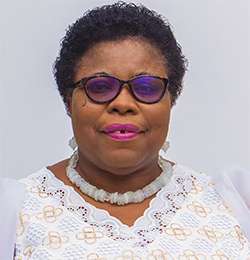
VC University of Health and Allied Sciences
KEYNOTE SPEAKER

Director Noguchi Memorial Institute for Medical Research
Professor Dorothy Yeboah Manu
Dorothy Yeboah-Manu, PhD: Dorothy is a Professor of Microbiology, and the Director, Noguchi Memorial Institute for Medical Research, University of Ghana. Prior to her current appointment, she had worked as the Deputy Director, West African Centre for Cell Biology of Infectious Pathogens and Head of Bacteriology at the same university. She also lectures at the Department of Biochemistry, Cell and Molecular Biology. Her main research interest includes AMR, diagnosis, host-pathogen interactions, and genomic epidemiology of infectious diseases. She has extensive experience conducting sero-epidemiological surveys and One Health studies. She also offers advisory services; she is a member of the WHO Global Network of Laboratories Confirming Buruli ulcer, as well as the Chairperson of the Advisory Board of the National TB Control Program, Vice Chair of the Clinical Trial Community. She is also a member of PANDORA-ID-NET and West Africa Network of Excellence for TB, Malaria and HIV/AIDS. She is a Senior Fellow of the EDCTP and won the Royal Society Africa Prize 2018
Professor Dorothy Yeboah Manu

Chair of the scientific and organising committee and plenary speaker
Prof. Margaret Gyapong
A medical anthropologist by training, Professor Gyapong is a professor of Applied Health Social Science at the University of Health and Allied Sciences (UHAS), Ghana.
Prior to joining the university in 2017, she spent several years as a researcher in the Ghana Health Service and was the foundation Director of the Dodowa Health Research Centre
Prof. Gyapongs interests are in socio-cultural aspects of infectious diseases of poverty, Implementation research, women’s health and capacity building. She is interested in research impact and has been leading work in this area that brings together the experiences of disease control programs and research institutions in Africa, Asia, and Europe. She was instrumental in the development of the TDR Implementation Research Toolkit. Her research has impacted program implementation and policies in Health systems, Malaria, Maternal and Child Health and Neglected Tropical Diseases
Professor Gyapong currently serves on several boards and committees notable among them are the TDR STAG, GLIDE, Sightsavers, Swiss TPH , NTD STAC, Royal Society of Tropical Medicine and Hygiene, to mention a few.
Among several awards, she was adjudged the EDCTP 2020 most outstanding female scientist for her contribution to research, training, and mentorship in reducing poverty-related diseases.
Professor Gyapong is a mentor to several young African scientists, especially females and has 127 publications and book chapters to her credit.
Prof. Margaret Gyapong
PLENARY SPEAKERS
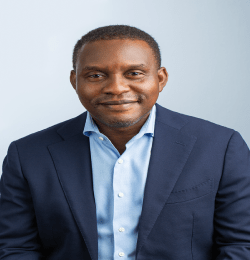
Senior Advisor, Innovation and digitization. Africa CDC
Dr. Edem Adzogenu
Dr. Edem Adzogenu's work straddles the public, private, and civic sectors, with an emphasis on innovation, economic development, Pan-African integration, and social transformation. He has facilitated the investment of millions of dollars into community-friendly mining, environmental remediation, large-scale technology platforms, and health facilities across Africa and beyond.
His global advisory experience ranges from advising African Heads of State, Fortune 500 companies, G7 countries, and African regional institutions, to helping resolve disputes over investments in war-threatened regions. He brings to these roles a unique set of skills in crisis management, change management, and complex partnerships formation, often to redesign large and sensitive projects and transactions with a fresh and innovative perspective.
Dr. Adzogenu has been at the forefront of ground-breaking initiatives to promote public-private partnerships and a stronger role for the African private sector in regional and continental integration. Under his leadership, AfroChampions, an organisation he co-founded, has grown into an influential regional public-private partnership platform that partners with the African Union and several regional institutions to drive African integration and transformation, using innovative toolkits such as technology investing, novel financing instruments, and intergovernmental policy design.
Working with some of Africa's foremost thinkers and leaders, he guided the adoption by African Heads of State of the “Trillion Dollar Private Sector AfCFTA Investment & Financing Framework (TDF)” in support of AfCFTA Implementation. To ensure the success of the TDF, he has mobilised support at the highest levels of Pan-African leadership for vehicles such as the 4D initiative that is bringing together individual countries in Africa, the African Union, the Africa Diaspora and major development finance institutions, for the first time, to push large-scale resource mobilisation using innovation as the anchor.
Beyond his special focus on Africa, Dr. Adzogenu is a Non-Executive Director of Capital Hospital in South Africa, Director of Capital Genetics (MetaGenomix) and sits on several International Advisory boards.
Dr. Edem Adzogenu
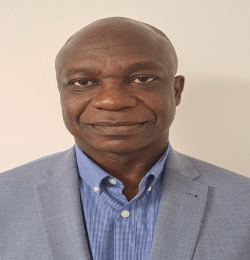
Sightsavers Executive Director reaching the last mile for Onchocerciasis and Lymphatic Filariasis
Sunday Isiyaku PhD – Executive Director of Reaching the Last Mile for Onchocerciasis & Lymphatic Filariasis in Africa for Sightsavers.
Sunday holds a PhD in Zoology from Ahmadu Bello University Zaria, Nigeria with a background in Entomology and Parasitology and is currently the Executive Director of Reaching the Last Mile for Onchocerciasis & Lymphatic Filariasis in Africa for Sightsavers. Prior to his current appointment, he was Country Director for Sightsavers Nigeria & Ghana for over a decade and half. He worked as a Senior Research Officer at the Nigerian Institute for Trypanosomiasis and Onchocerciasis Research, Kaduna Nigeria before joining Sightsavers in 1997. He participated in many World Health Organisation/Tropical Disease Research projects on community directed interventions and strengthening health systems at community level. He led in the scale up of Sightsavers support for control and elimination of Neglected Tropical Diseases in northern Nigeria most of it funded by the FCDO. He served as Consultant to the African Programme for Onchocerciasis Control for evaluations of community directed treatment with ivermectin programmes in a number of African countries. He has extensive knowledge and experience on community-based mass administration of medicines for the control of NTDs working in partnership with government and served as the Principal Investigator for the COUUNTDOWN research project in Nigeria working in collaboration with "Liverpool School of Tropical Medicine. He is also a fellow of the Parasitology and Public Health Society of Nigeria.
Dr. Sunday Isiyaku
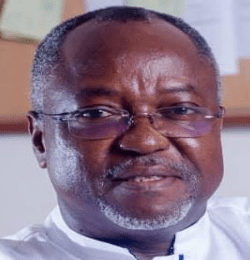
Centre Suisse de Recherches Scientifiques en Côte d'Ivoire, and Director AfriqueOne
Bassirou Bonfoh, Director Afrique One @Centre Suisse de Recherches Scientifiques en Côte d’Ivoire (CSRS)
Bassirou holds a DVM and a PhD in epidemiology. He worked between 1995-2000 in West Africa for Vétérinaires Sans Frontières. He went in 2000-2004 for epidemiology postdoctoral fellowship at the Swiss Federal Institute of Technology Zurich and Swiss TPH. He led between 2004 and 2008, a research group in Africa and Asia to promote the One Health (OH) approach in health system with a focus on zoonosis and animal source food safety. Between 2009 and 2018, he was the managing Director of CSRS in the area of transdisciplinary research, research capacity building and science partnerships and diplomacy (www.csrs.ch). After his sabbatical in Rakuno Gakuen University, Japan (2018), he has contributed to expand the One Health approach research to non-communicable diseases with a focus on human lifestyle and behavior change. Since 2009 to date, he is the Director of Afrique One (www.afriqueone.org) a leading African research capacity building program in One Health funded under the African Institutions Initiative (Wellcome) and DELTAS Africa I&II (SAF, WT, UKAID).He is coordinating the African Research Consortium on Health (ARCH) comprising 14 consortia (including WACCBIP) under the DELTAS Africa 2 II. Bassirou is a guest lecturer at University of Liège (Belgium), University of Kara and Lomé (Togo) and at the veterinary school (Senegal) where he chairs the scientific advisory board. He I also guest scientist at Swiss TPH (Switzerland) and Rakuno Gakuen University in Japan and is a fellow of the African Academy of Sciences. He advises ECOWAS in the OH coordination mechanism.
Prof. Bassirou Bonfoh.
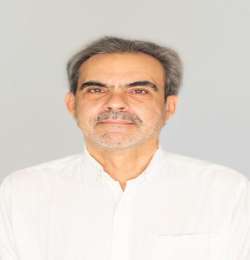
Public Health Specialist Swiss TPH
Dr. Xavier Bosch-Capblanch
Xavier Bosch-Capblanch is a Medical Doctor, project leader at the Swiss TPH, faculty member of the Swiss School of Public Health (SSPH+) and Ass. Professor at the University of Basel, with 30 years experience in international health, 10 of which living in rural Sub-Saharan Africa settings. He is interested in methods to bring robustness to health systems research evidence and vaccination. He has led numerous initiatives in research, technical assistance and teaching in the fields of evidence informed health care, immunisation and health systems. He has also served in consultative forums, such as the WHO Immunisation Practices Advisory Group and the Immunisation Agenda 2030 Monitoring and Evaluation Working Group.
Dr. Xavier Bosch-Capblanch
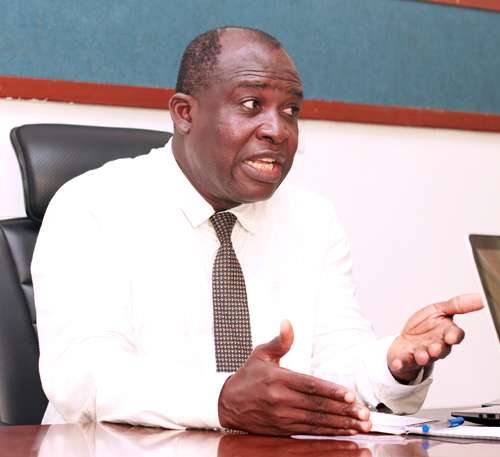
Professor of Nutrition UHAS
Prof. Paul Amuna. Professor of Nutrition UHAS
Prof. Paul Amuna
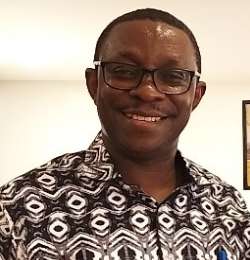
Dr. Billy Bosu International Public Health Consultant
Dr William BOSU, MPH MSc PhD DTMH FFPH
Dr Bosu is an international Public Health Consultant with many years of experience in research, policy, planning, and the management and control of noncommunicable diseases (NCDs)-programme. He recently retired as the Principal Professional Officer, Healthcare delivery at the West African Health Organization (WAHO) where he worked for 12 years. While there, he served initially as the Technical Lead for NCDs, Eye Health, Mental Health and Nutrition and later as the Technical Lead for malaria, HIV, Non-epidemic Diseases and Neglected Tropical Diseases (NTDs) and other infectious diseases at WAHO, providing technical support to ECOWAS Member States.
He was the national Programme Manager for the NCD Prevention and Control Programme in Ghana from 2004 to 2012. He was an Adjunct Lecturer in epidemiology at the School of Public Health, University of Ghana over the same period. Dr Bosu is a Member, International Advisory Board, African Research Universities Alliance (ARUA) Centre of Excellence in NCDs and a Member, International Society of Hypertension. He is a Fellow of the West African College of Physicians, the Ghana College of Physicians as well as the Faculty of Public Health of UK.
Dr William Kofi BOSU, MPH MSc PhD DTMH FFPH
SCIENTIFIC AND ORGANISING COMMITTEE
Name | Institution | Country |
Prof. Magaret Gyapong | UHAS IHR | Ghana |
Prof. Seth Owusu-Agyei | UHAS IHR | Ghana |
Prof. Evelyn K. Ansah | UHAS IHR | Ghana |
Prof. Kwame Obeng Buabeng | UHAS IHR | Ghana |
Prof. Bassirou Bonfoh | CSRS | Ivory Coast |
Dr. Theresa L. Adu Ghana | UHAS Library | Ghana |
Dr. Maxwell Dalaba | UHAS IHR | Ghana |
Dr. Matilda Aberese-Ako | UHAS IHR | Ghana |
Dr. Mustapha Immurana | UHAS IHR | Ghana |
Dr. Alfred K. Manyeh | UHAS IHR | Ghana |
Dr. Christian Auer | STPH | Switzerland |
Dr. Cedric Amengor | UHAS SOP | Ghana |
Dr. Phidelia Doegah | UHAS IHR | Ghana |
Dr. Gideon Kye-Deudu | UHAS FNBSPH | Ghana |
Dr. John Nsor Atindana | UHAS SAHS | Ghana |
Dr. Dominic Adjei Danquah | UHAS Library | Ghana |
Mr. Patrick De Souza | UHAS ICT | Ghana |
Ms. Lily Adu Aboagye | UHAS DAA | Ghana |
Ms. Irene Tsey | UHAS IHR | Ghana |
Name | Institution | Country |
Mr. Frank Atuguba | DHRC | Ghana |
Mr. Fidelis Anumu | UHAS IHR | Ghana |
Ms. Evelyn Acquah | UHAS IHR | Ghana |
Mr. Alfred Ofori | UHAS ITAM | Ghana |
Mr. Divine Eli-Cofie | UHAS SEMS | Ghana |
Mr. Baffour Gyem Dakwa | UHAS PA | Ghana |
Mr. Kwesi A. Hagan | UHAS IHR | Ghana |
Mr. Emeli McJames Akwensivie | UHAS PA | Ghana |
Ms. Rejoice Tawiah | UHAS IHR | Ghana |
Mr. Akpe Aflakpui | UHAS ICT | Ghana |
Mr. John Bledua | UHAS ICT | Ghana |
Mr. Julius Agbeyekah | UHAS PA | Ghana |
Mr. Emmanuel Bentil Odoom | UHAS ICT | Ghana |
Mr. Christopher T. Odopey | UHAS IHR | Ghana |
Mr. Saviour Edem Vidzro | UHAS IHR | Ghana |
-
+233 (0) 362 196122
+233 (0) 245 125359 - [email protected]
-
University of Health and Allied Sciences
PMB 31, Ho, Volta Region, Ghana.
